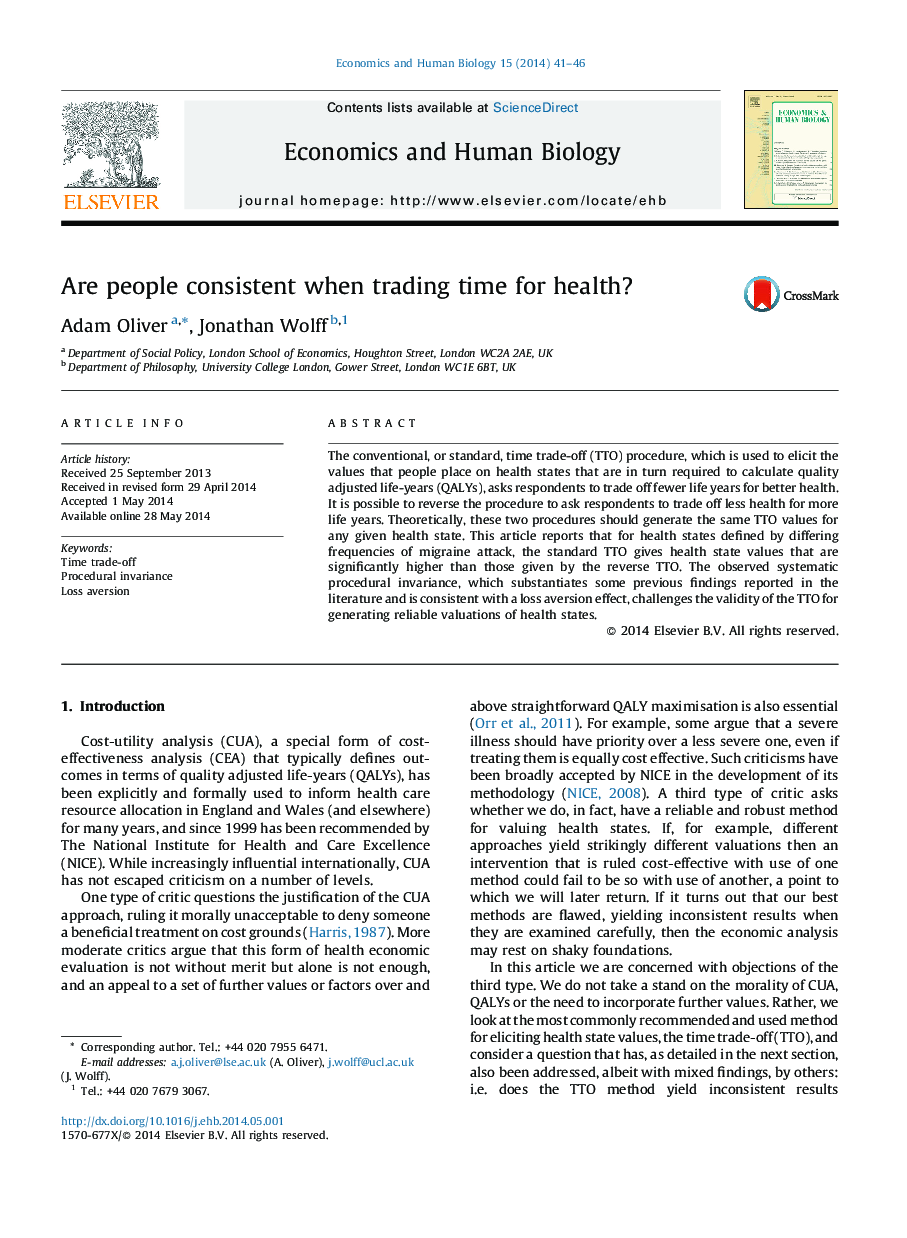| کد مقاله | کد نشریه | سال انتشار | مقاله انگلیسی | نسخه تمام متن |
|---|---|---|---|---|
| 5056988 | 1476564 | 2014 | 6 صفحه PDF | دانلود رایگان |
- The time trade-off (TTO) is used to elicit the health state values.
- These values are required to calculate quality adjusted life-years (QALYs), which are used in health economic evaluation.
- The TTO should produce an identical value for each health state, irrespective of how the instrument is framed.
- The study reported here shows that the values generated by the TTO systematically depend on framing.
- This finding has important implications for the practical application of health economic evaluation.
The conventional, or standard, time trade-off (TTO) procedure, which is used to elicit the values that people place on health states that are in turn required to calculate quality adjusted life-years (QALYs), asks respondents to trade off fewer life years for better health. It is possible to reverse the procedure to ask respondents to trade off less health for more life years. Theoretically, these two procedures should generate the same TTO values for any given health state. This article reports that for health states defined by differing frequencies of migraine attack, the standard TTO gives health state values that are significantly higher than those given by the reverse TTO. The observed systematic procedural invariance, which substantiates some previous findings reported in the literature and is consistent with a loss aversion effect, challenges the validity of the TTO for generating reliable valuations of health states.
Journal: Economics & Human Biology - Volume 15, December 2014, Pages 41-46
